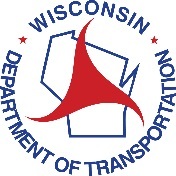Wisconsin Department of Transportation Putting a Spotlight on Human Trafficking
Wednesday, January 5th, 2022 -- 2:00 PM

The Wisconsin Department of Transportation is putting a spotlight on human trafficking, a crime that often hides in plain sight.
January is National Slavery and Human Trafficking Prevention Month. Human Trafficking Awareness Day is recognized every year on January 11 with the social media campaign #WearBlueDay.
It’s an opportunity to raise awareness about the different types of trafficking and teach people how to spot it. Human trafficking can involve forced labor or sex trafficking and it happens in communities of all sizes around the world.
WisDOT is one of hundreds of partners that signed on to the US Department of Transportation’s initiative Transportation Leaders Against Human Trafficking, to bring the travel industry together to combat this crime across the country. “Human trafficking is a hidden crime that needs to come out of the shadows,” WisDOT Secretary Craig Thompson said.
“Traffickers are using our highway system to transport victims and perpetuate this crime. We are doing everything we can to stop it in Wisconsin. “It can take a perceptive officer, hotel worker, or bystander to notice signs of human trafficking."
WisDOT and the Wisconsin State Patrol work closely with the state Department of Justice to provide training to law enforcement and private sector partners across Wisconsin. All State Patrol officers are trained in recognizing the basic indicators of human trafficking, the questions to ask, and options to help connect a victim with available social services.
“Human trafficking targets vulnerable people, regardless of demographics, so we are committed to doing our part to stop it,” State Patrol Superintendent Anthony Burrell said.
“When our officers encounter a potential human trafficking situation, they’re trained to use a victim-centered approach. Our goal is to avoid traumatizing a victim any further.” Everyone can help stop trafficking by keeping an eye out for indicators.
The following could be signs someone is vulnerable including a sudden or dramatic change in behavior; becoming disconnected from family, friends, or community organizations; signs of mental or physical abuse, or deprivation of basic needs; and indication of being coached on what to say, or not in control of their own decisions.
A full list is available from the Department of Homeland Security. If you encounter a situation you suspect is human trafficking, do not approach anyone involved.
Gather as much information as possible and contact the National Human Trafficking Hotline at 1-888-373-7888 or text “HELP” or “INFO” to 233733. If there is an immediate danger, call 911.
Feel free to contact us with questions and/or comments.




